Trait Emotional Intelligence Questionnaire (TEIQue)
Get insight into a person's emotions at work
- Recruit emotionally intelligent leaders
- Create a fully engaged workplace
- Develop effective teams
- Avoid conflicts & confrontation
- Improve business performance
- Create positive group interactions
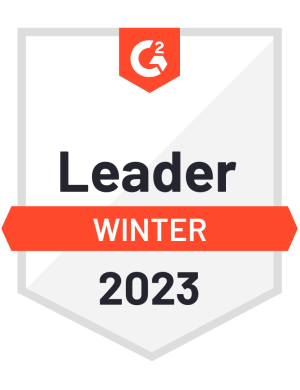
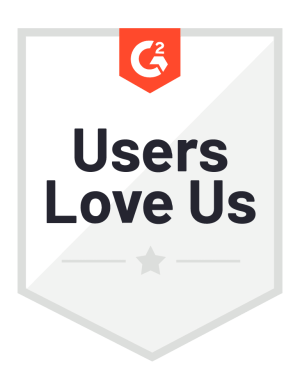
Check out the latest reviews from our most delighted customers
The Thomas Trait Emotional Intelligence Questionnaire (TEIQue)
The Trait Emotional Intelligence Questionnaire (TEIQue), part of our Team Interaction Optimisation (TIO) platform can help your business recruit emotionally intelligent leaders and create a fully engaged workforce of effective teams to improve business performance.
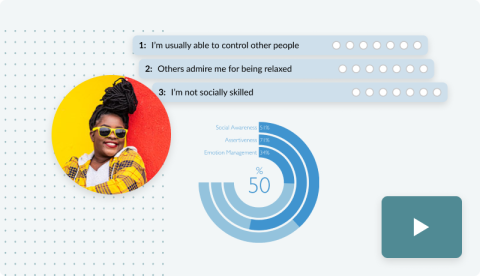
How the Trait Emotional Intelligence Questionnaire works
The Trait Emotional Intelligence Questionnaire (TEIQue) gives your people the edge they need to perform in today’s complex business environment.
Detailed Reports
Understand a person’s strengths and limitations, how they react under pressure, how well they develop new relationships and how self-motivated and adaptable they are.
No right or wrong answers
There is no right or wrong way of using emotional intelligence. There are positive and negative implications for all the different scores within the questionnaire, which are explained in the reports.
Many different uses
The TEIQue is used for a number of purposes, including appraisals, leadership training, work and life coaching, talent development, measuring employee morale, team building, recruitment and selection and many more.
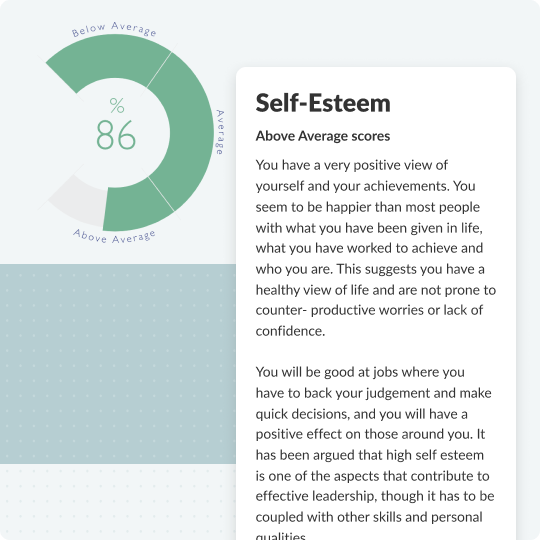
Assessment Information
- Assessment type: Emotional Intelligence
- Format: 153 questions
- Time to complete: 30 minutes
- Training required: TEIQue Accreditation
Validation:
Registered with the British Psychological Society and audited against technical criteria established by the European Federation of Psychologists’ Associations

TEIQue really helps us to get under the skin of a candidate's personality and gives prospective managers an in-depth insight into how a candidate would fit in their team.
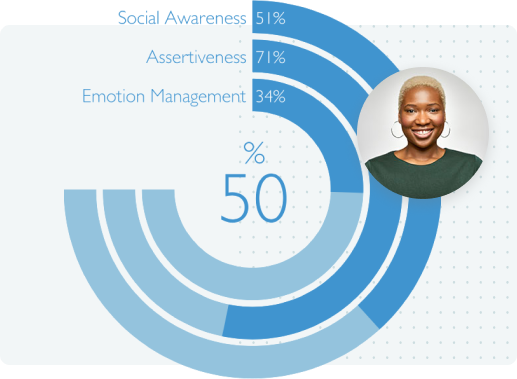
Background & Theory
The TEIQue is based on K. V. Petrides' trait emotional intelligence theory, from 1998. It is one of the world's best-researched and most widely applied psychometric instruments.
Petrides’ theory views emotional intelligence as a group of emotional self-perceptions that are located at the lower levels of personality hierarchies. Trait EI assesses the emotional world of an individual comprehensively.
Among other psychological characteristics, the TEIQue assesses our beliefs about our emotional abilities (e.g., how good we believe we are at identifying, understanding, and managing our own and other people's emotions). These beliefs are strong predictors of a range of behaviours and achievements, which are vital in the workplace (job performance, job satisfaction, job stress, leadership, organizational citizenship, organizational commitment, teamwork).
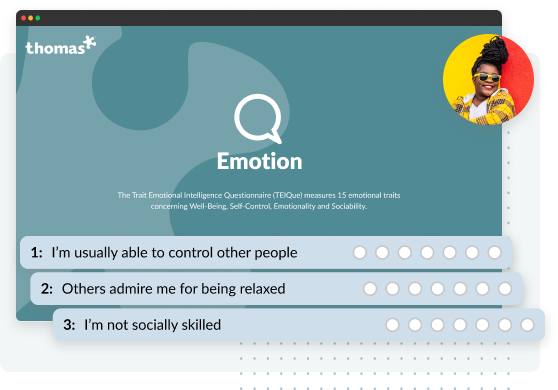
Format of the Thomas TEIQue
The Thomas TEIQue is a self-report questionnaire. Individuals indicate their level of agreement on a 1-7 Likert scale (1 'disagree completely' to 7 'agree completely') with 153 unique items.
The TEIQue report reflects what an individual thinks of themselves. The scores are compared to the responses of a representative working population sample then reported under the headings of four main, broad Factors. These are made up of fifteen more focused Facets as well as two independent Facets that don’t contribute to a Factor: Adaptability and Self Motivation.
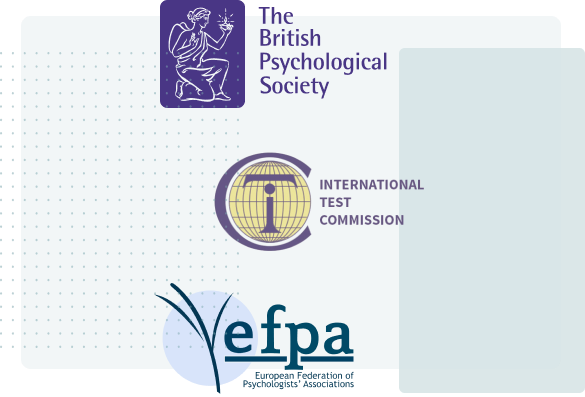
Reliability & Validity
The Thomas TEIQue has been subject to rigorous scientific testing to determine its reliability and validity as a psychological assessment. It is registered with the British Psychological Society (BPS) after it was audited against the technical criteria established by the European Standing Committee on Tests and Testing, part of the European Federation of Psychologists' Associations.
Thomas conducts on-going psychometric research with the TEIQue. We have previously collaborated with the Psychometrics Centre at Cambridge University www.psychometrics.cam.ac.uk. Please get in touch with [email protected] if you are interested in supporting our continuous development programmes.
Frequently Asked Questions
<h6 id>What is the Thomas TEIQue?</h6 id>
Thomas’ Trait Emotional Intelligence Questionnaire (TEIQue) is an emotional intelligence assessment that provides insight into how candidates deal with their emotions, respond to work pressure and manage relationships, as well as how effectively they are able to judge other people’s feelings and how they use this knowledge to develop and maintain good relations.
<h6 id>How does the Thomas TEIQue work?</h6 id>
The Thomas TEIQue is a self-report questionnaire where individuals indicate their level of agreement on a 1-7 Likert scale (1 'disagree completely' to 7 'agree completely').
The scores are compared to the responses of a representative working population sample then reported under the headings of four main, broad Factors. These are made up of fifteen more focused Facets and 2 independent Facets that don’t contribute to a Factor: Adaptability and Self Motivation.
<h6 id>What are the benefits of TEIQue to an organisation?</h6 id>
The TEIQue provides information to individuals that better helps them to understand their strengths and limitations, how well they develop new relationships and how self-motivated and adaptable they are.
As a result, the TEIQue has many applications in the workplace including appraisals, leadership training, work and life coaching, talent development, measuring employee morale, team building, recruitment and selection and many more.



